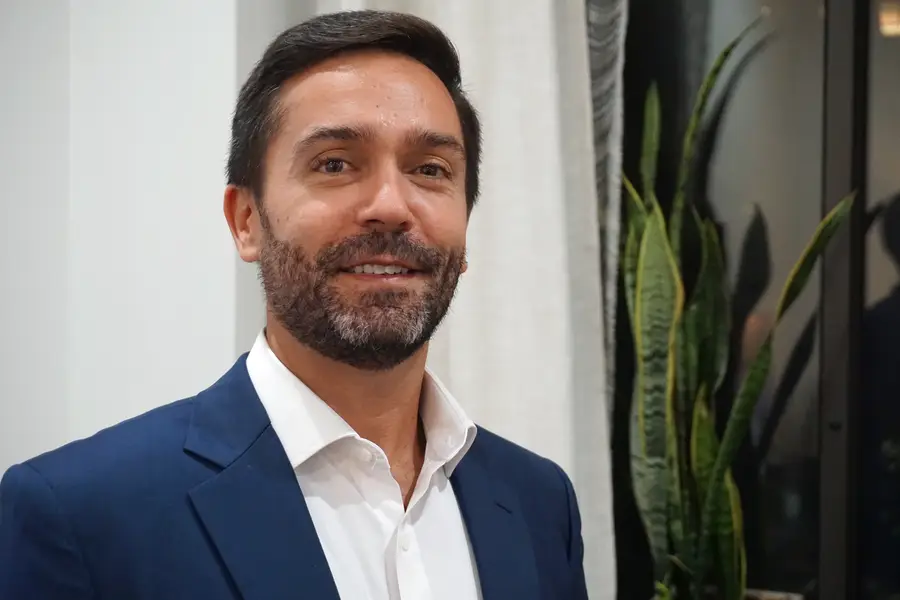Combating Climate Change Through Finance
Tom Bishop is passionate about leveraging his financial expertise to accelerate solutions for climate change mitigation and adaptation.
Tom Bishop is passionate about leveraging his financial expertise to accelerate solutions for climate change mitigation and adaptation.

Tom Bishop serves as a senior climate finance advisor for RTI, where he helps communities adopt practices that enable a sustainable future through climate change mitigation and adaptation. Originally an accountant by training, Bishop has taken a nontraditional path to reach his career goals.
Most communities and ecosystems have experienced the negative consequences of climate change globally. Increasing global temperatures, caused by greenhouse gas emissions, have led to extreme weather events, rising sea levels, wildfires, draughts, floods and more. Climate change has displaced species and threatened water and food security for many. It is increasingly clear that global companies, governments, and the community at large must commit to funding actions that reverse the negative effects of rising temperatures.
This challenging but urgent task became a powerful draw for Bishop’s career. With his financial expertise, Bishop advises projects on securing funds to support communities impacted by climate change.
“Every day, we gain a deeper understanding of how climate impacts livelihoods, health, migration, and overall global stability – it truly plays a large factor in all our work at RTI,” stated Bishop.
Bishop explains climate finance aims to cover the costs of two important parts of the response to climate change: mitigation and adaptation. Mitigation involves the reduction of carbon emissions that cause climate change like renewable energy and reforestation. Adaptation involves actions to build resilience to the impacts of climate change, such as improved agricultural practices or storm-resistant housing.
Climate finance comes from a variety of public and private sources and instruments, including grants, loans, equity investments, and many more. A key opportunity, according to Bishop, is to bring together diverse actors to form new partnerships and innovative financial instruments, referred to as blended finance.
“Blended finance allows us to use relatively small amounts of catalytic capital to mobilize the vast amount of private funding needed to close the climate finance gap,” he said. “It’s a model that can be scaled when you line up the right investors, projects, and structure.”
Bishop’s climate finance career was a journey of strategic steps and opportunities. After earning his bachelor’s degree in accounting and finance from Georgetown University, Bishop worked as a certified public accountant at Deloitte. There, he built a solid foundation in business analytics, finance, and accounting, which became the backbone of his professional growth.
After a few years, Bishop returned to graduate school, earning his Master of Business Administration from the Johnson School at Cornell University. There, he studied market approaches to tackle societal problems through the Sustainable Global Enterprise program. As an Environmental Finance and Impact Investing fellow, Bishop focused his efforts on how investment can be used to fight the impacts of climate change. Upon graduating, Bishop joined an impact investment team at Bank of America which focused on finance for affordable housing, solar, and other community development projects.
In 2018, Bishop cemented his career in climate finance by joining the Green Climate Fund (GCF), the largest dedicated fund for climate projects in low-income countries, within the United Nations-backed framework. Bishop packed his bags and moved with his girlfriend (now wife) to South Korea, where he joined GCF’s private sector climate finance team.

Bishop with colleagues and wife, Adna (in blue jacket), visiting the village of Jeonju on a rainy day. Jeonju is renowned in Korea for its unique style of bibimbap.
One of Bishop’s key focuses was establishing green banks, which use public funding to mobilize many multiples of private finance for climate projects through innovative financial instruments. While green banks are becoming common in the United States, including a new national green bank to be created through the Inflation Reduction Act, they are extremely rare in low-income countries. Bishop is pleased to have supported the development of new national green banks in Mongolia and Barbados during his time at GCF.
“GCF was a great place to advance a career in climate finance. My colleagues brought a wide range of experience and expertise, and we worked on some of the most exciting projects in climate change. I keep in close contact with many of them and look for opportunities to work together again.”
In 2023, Bishop moved back to the U.S. and joined RTI’s International Development Group. He now provides technical expertise on mobilizing climate finance for mitigation and adaptation programs across the energy, agriculture, and infrastructure sectors. Bishop appreciates the diversity of technical expertise at RTI, both as a research institution and an international development organization. He is enthusiastic about engaging in a wide range of projects across climate finance. He is currently leading an internally-funded research and development project to build a carbon markets project development tool while actively exploring how RTI can collaborate with new partners in the climate sector.
Working at RTI has been a seamless transition, given its leading role in climate research and program delivery. I’m excited for the opportunity to further expand its climate finance initiatives and support low-income countries mobilize much needed funding.
Although attention around climate finance has increased in recent years, the majority of work still lies ahead. The money needed to meet climate goals is significant, and while new commitments are often announced, the funding often comes too slowly or with too much red tape.
Bishop will be attending the upcoming COP29 in Baku, Azerbaijan with several RTI climate experts. There is optimism that an ambitious new global climate finance target will be set, referred to as the New Collective Quantified Goal on Climate Finance, but it will only be clear over the next several years as to whether this it leads to additional funding on the ground to communities that are hardest hit by climate change.
Bishop took a nontraditional approach into the climate finance field, but he is grateful for the path he chose. His drive to advance climate finance is fueled by a desire to improve people’s lives and livelihoods in the face of growing climate uncertainties. Recognizing the urgent need for climate action, Bishop is dedicated to leveraging his expertise to foster a more sustainable and equitable future for us all.